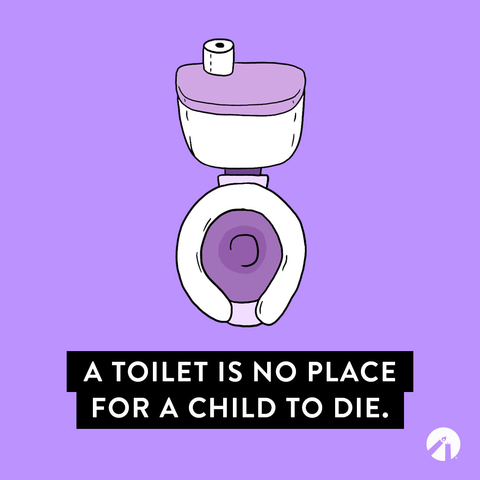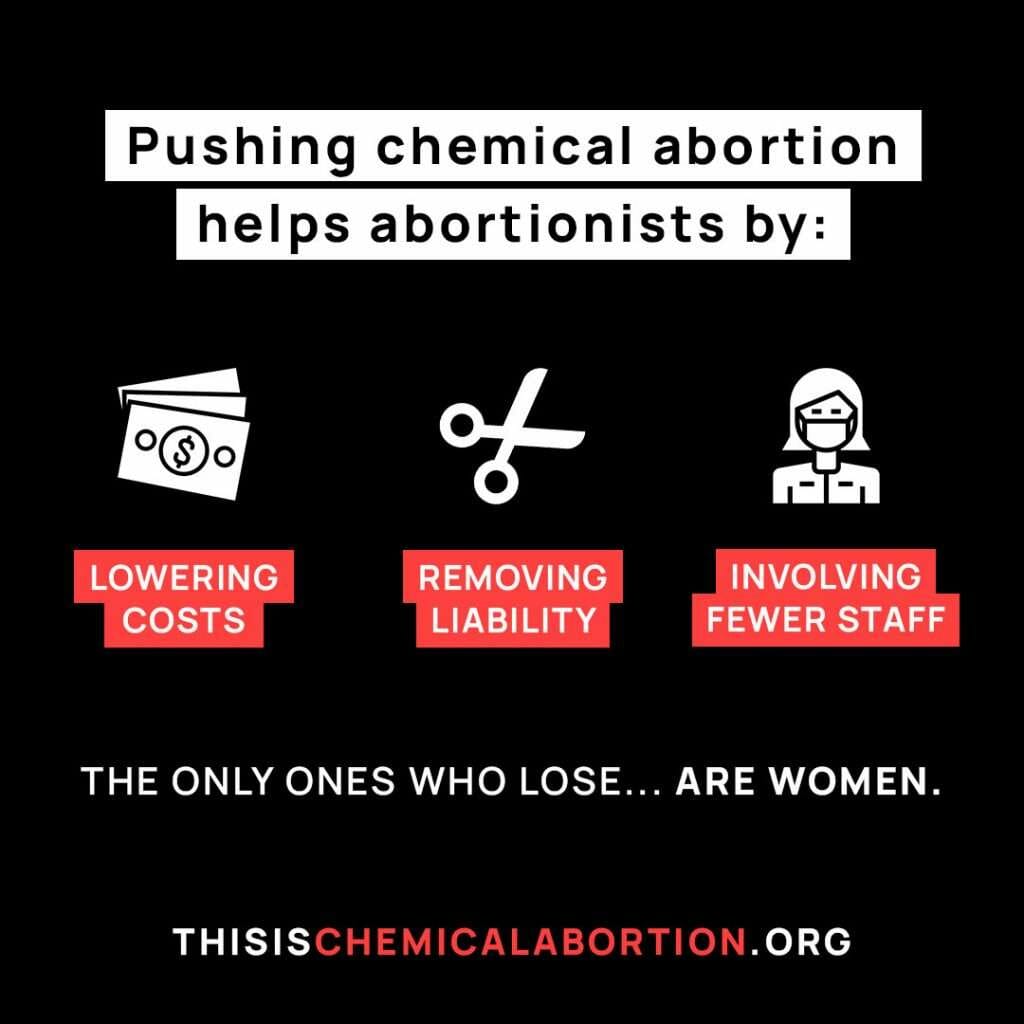
To read this recent article of how “How Telemedicine Startups Are Revolutionizing Abortion Health Care in the U.S.,” from Ms. Magazine which promotes and fawns over chemical abortion, women would never know the true nature of this method. How can they when the piece so selectively looks at the process in such a rosy way? When abortion advocates’ definition of “health care” means killing people, they’re doing it wrong.
The article claims 11 times that chemical abortion is “safe.” When it comes to first-trimester abortions, chemical abortions are mentioned side-by-side with surgical abortions and chemical abortions which are started at a facility. Ms. Magazine claims that the at-home method is “less invasive, more private and more convenient than in-clinic medication abortion or procedural abortion by aspiration.”

There is zero mention of how this method which is highly celebrated here is 10 times more deadly than surgical abortions. The piece acknowledges that it is “95 percent effective,” but that means that 5 percent of such abortions are not, which can lead to a severe infection, and possibly death from the incomplete abortion. This failure rate increases as the gestational age does.
The increase of chemical abortions—which accounted for 39% of abortions in 2017 and 60% of those performed up until 10 weeks—means abortion rates have risen. More babies will die, with many women facing injury or even death from this dangerous method.

More women will undergo this method, at home, without a doctor, as they give birth to their dead embryo which they then flush down the toilet. It’s a process which many women who have gone through share unimaginable horrors about, including pro-choice women.
How is that “safe?” Does that sound “amazing?” Or something that someone should be “really excited” and “really glad” about? And yet that’s how this method is presented.
The article mentions how “eligible patients” can receive abortion pills through the mail, though it’s worth asking what constitutes “eligible.” One might be “eligible” simply from a text message, which is mentioned in a disturbingly celebratory manner throughout the article.
As Ms. Magazine explains, with added emphasis:
These new virtual clinics screen patients by video conference, telephone or text, using the new no-test, no-touch medical protocol that is now the standard of care for medication abortion (which uses pills to end a pregnancy). They then mail the medication to their patients at home, often using new online pharmacies. In total, people in 19 states and Washington D.C. now have legal access to telemedicine abortion from a doctor within their state.
These startups are revolutionizing abortion care by offering quick, private, safe, convenient and affordable services.
If women are only “often using new online pharmacies,” where do the rest turn to? Do they get the pills somewhere else over the Internet? How do these already vulnerable women know that the pills which the seller claims they are? Are they safe? The answer is that they may very well not be. And while Ms. Magazine may claim that “no-touch medical protocol… is now the standard of care,” that’s what makes a dangerous procedure even more deadly.

This article condemns routine procedures such as blood tests, an ultrasound, and Rh testing. There’s an entire article from May devoted to misleading women with such dangerous claims.
That article claims that these health checks are “invasive” and “time-consuming.” How can it be regarded as such to ensure a woman isn’t too far along in a pregnancy to undergo that method; that she is actually pregnant; that she doesn’t have an ectopic pregnancy, which is deadly and not removed through chemical abortion; or that she isn’t Rh negative, putting her at risk for future pregnancies resulting in miscarriage? Such a perspective hardly makes this method seem “safe.”
In July, U.S. District Judge Theodore Chuang in of Maryland, an Obama-appointee, ruled that safety regulations from the FDA, known as REMs, necessitating in-person visits, were “likely to “be unconstitutional.”
In response to court cases, Americans United for Life further explains the necessity of these routine procedures here.
The “revolutionizing” start-ups in the piece include Just the Pill, and Chioix, whose Dr. Aisha Wagner whose call is “normalize abortion” and who says abortion is “normal.” She believes it’s something “we need to shout from the rooftops.” Co-founder Lauren Dubey echoes that abortion is “totally normal.” She also says that they “will treat everybody with dignity and respect.” That certainly does not include the preborn, but it also doesn’t include the women who may not know what they’re getting into. There’s also carafe and Hey Jane.
To learn more about this method, including risks and side-effects—which which include weeks-long bleeding, abdominal pain, nausea, vomiting, diarrhea, and headache—you can turn here and here. It’s also worth watching floor speeches from Senator Mike Lee on REMs.
Share this post
Recent Posts

National Celebrate Life Weekend Dominates D.C.: Just Look at the Coverage
01 Jul 2025
The Pro-Life Generation REACTS: “Big, Beautiful” Budget Bill Vote One Step Closer to Defunding Planned Parenthood & ALL Abortion Vendors
01 Jul 2025
News: FIVE Lawmakers Recognized for Defending Life
30 Jun 2025
